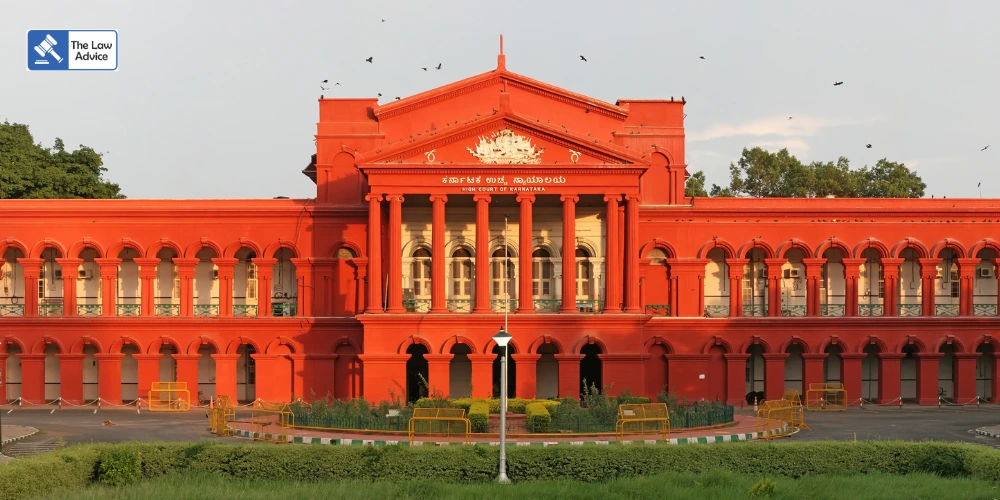Bengaluru, Sept 2:
The Karnataka High Court has categorically held that successive quashing petitions under Section 482 of the Code of Criminal Procedure (CrPC) / Section 528 of the Bharatiya Nagarik Suraksha Sanhita (BNSS) are impermissible unless supported by demonstrable changes in circumstances. The Court emphasized that any grounds available during the first petition but not urged stand abandoned and cannot be exhumed later to sustain subsequent petitions.
Justice M. Nagaprasanna, delivering a detailed ruling, dismissed the plea of G. Satyanarayana Varma, accused of being the “kingpin” in a large-scale financial fraud running into ₹188 crores involving alleged misappropriation of funds from the Karnataka Maharshi Valmiki Parishista Pangadagala Abhivruddi Nigama (KMVPAN).
Justice Nagaprasanna remarked:
“The second petition under Section 482 of the Cr.P.C./528 of BNSS is neither maintainable nor entertainable, unless founded upon demonstrable change in circumstance. Grounds that were manifestly available at the time of first petition, cannot be exhumed later, to prop up a second petition. Law cannot bend to repeated challenges devoid of new substance, nor can it ignore the gravity of allegations that undoubtedly want an adjudication in a full-blown trial.”
The bench held that allowing repeated pleas would encourage fragmented litigation, thereby delaying justice and undermining the judicial process.
During investigation, the IO traced money flows to the petitioner’s accounts. On 11 June 2024, Varma was taken into custody from Hyderabad, his residence searched, and cash and valuables seized. The Hyderabad Magistrate refused the transit warrant, but the police nevertheless produced him before the Bengaluru court, where he was remanded to custody.
Varma had earlier challenged the legality of his arrest before a coordinate bench of the High Court, contending that:
• He was not produced within 48 hours before the jurisdictional magistrate in Bengaluru.
• No valid transit warrant was obtained.
• Grounds of arrest were not provided.
The coordinate bench, however, dismissed the plea on 12 June 2025, and the order attained finality.
Just a week after the first petition was dismissed, Varma filed a fresh plea, raising similar arguments about illegal arrest and transit warrant issues while also seeking quashing of the entire proceedings.
The State opposed the petition, stressing that a charge sheet had already been filed, showing Varma as Accused No.1—the mastermind behind the fraud. Senior Advocate Vikram Huilgol, appearing for the Corporation, also highlighted the seriousness of allegations, emphasizing that funds earmarked for the welfare of Scheduled Tribes had been siphoned off.
The Court agreed with the State, noting:
• The second petition was identical in nature to the first and only attempted to revive abandoned grounds.
• By the time the first plea was filed, both the arrest and the charge sheet were already in existence, meaning the petitioner could have raised those grounds earlier.
• The attempt to repackage abandoned arguments was “clearly impermissible.”
Justice Nagaprasanna underscored:
“Since the said ground was not taken though available, it had been abandoned and the abandoned ground is exhumed in the subject petition. The petitioner now, by the present petition, is in effect wanting to resurrect substantially the same grounds interlaced with a plea for quashment of proceedings. This is clearly impermissible in law.”
Observing the “wealth of detail in the investigation, recovery of cash and gold, and the labyrinth of transactions,” the Court concluded that the case demands a full-fledged trial and cannot be quashed at the threshold.
The bench said that the alleged fraud involved public funds meant for Scheduled Tribes and highlighted the gravity of social impact:
“The money that had to be spent for upliftment of Scheduled Tribes, for which the Corporation was created, was allegedly swindled by officers of the Bank and the accused named in the charge sheet.”
Accordingly, the petition was dismissed.
Case Title & Counsel
• Case Title: G. Satyanarayana Varma v. State of Karnataka & Others
• For Petitioner: Advocate Rajesh Mahale
• For State: Addl. State Public Prosecutor B.N. Jagadeesha
• For Respondent No.3 (Corporation): Senior Advocate Vikram Huilgol with Advocate Shishira Amarnath
